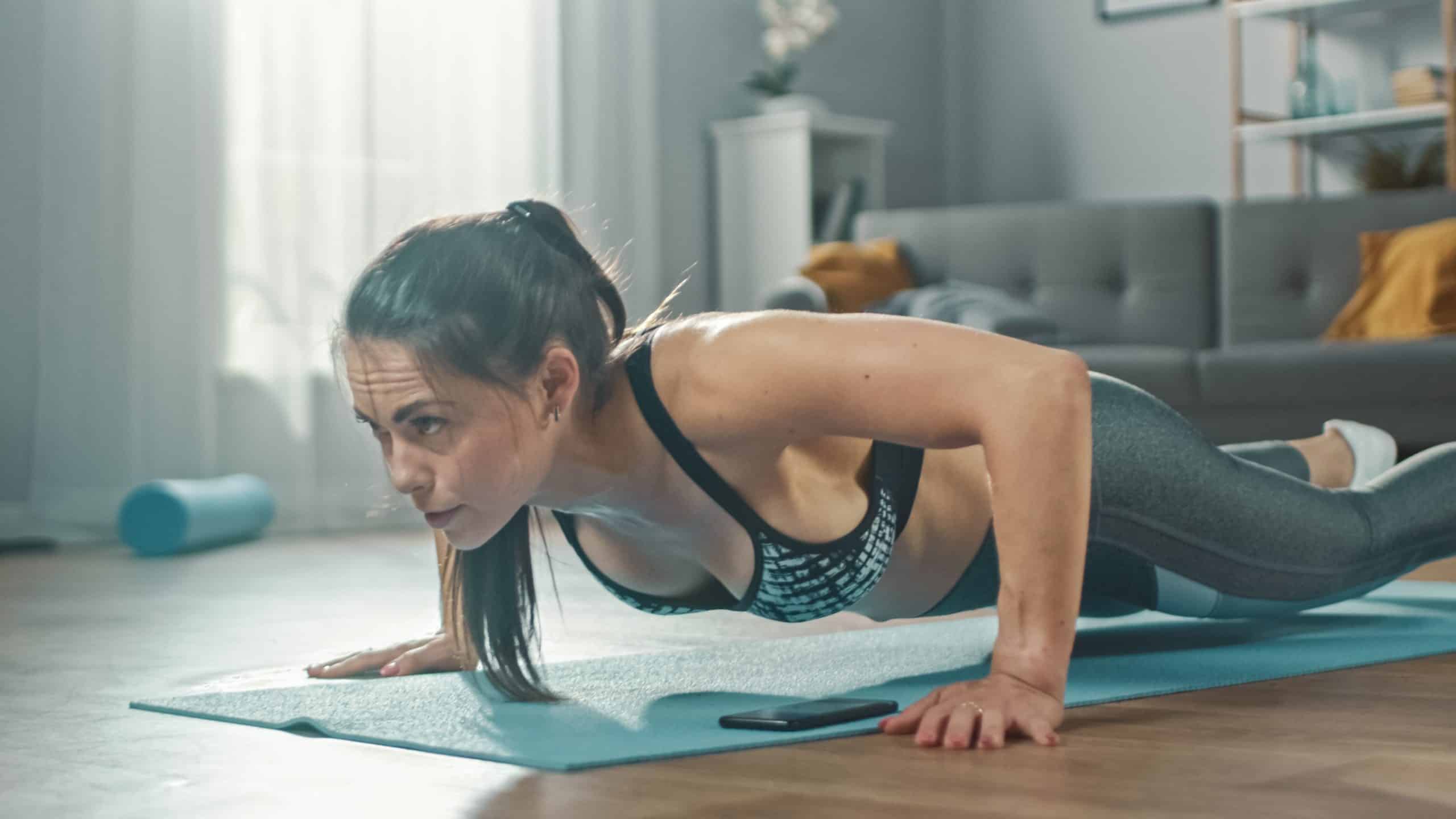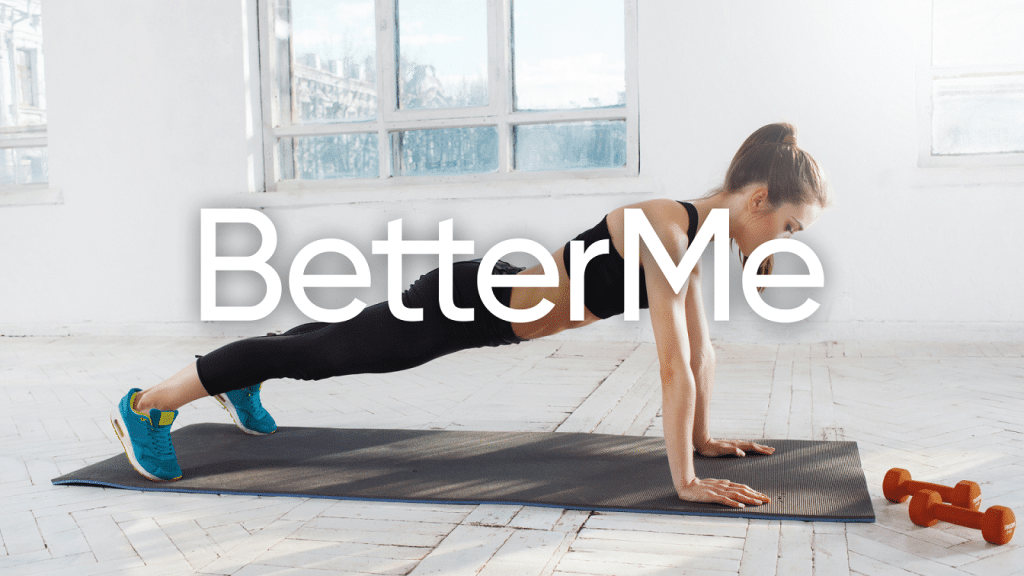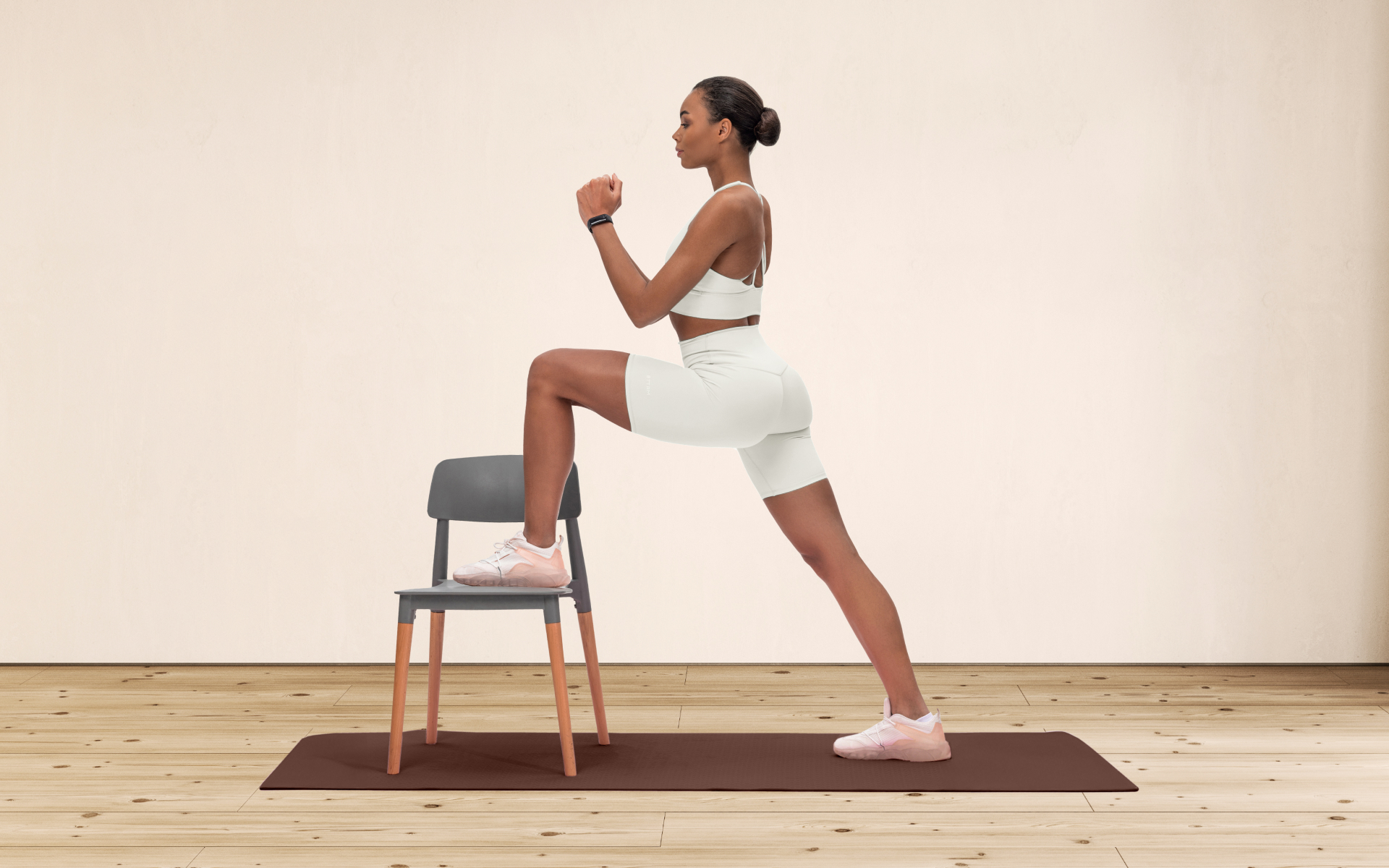Push ups are one of the most popular upper body movements . This compound exercise not only targets the muscles of your upper body and core, but also works the lower back, glutes, and even some leg muscles.
Get your personalized
meal plan!
Despite this exercise being a powerhouse workout, many are quite curious about push ups – calories burned. While exercise in general is beneficial for overall health and muscle growth, a lot of people workout only to lose weight.
Learning how many calories each exercise burns can help you optimize your workout routines for better – and even perhaps quicker – results. Read on to find out about push ups – calories burned, how to conquer lack of motivation when it comes to working out and more.
How Many Calories Do You Burn Doing 100 Push Ups?
When it comes to push ups – calories burned per individual, the answer is harder than you might imagine. In the same way that we gain or lose weight at different intervals, so do we burn calories differently.
Whether you’re looking to simply pep up your fitness routine, jazz up your diet with mouth-watering low-calorie recipes or want to get your act together and significantly drop that number on your scale – BetterMe app has got you covered! Improve your body and revamp your life with us!
The easiest way to determine calories burned in 100 push ups is by using an online ‘calories burned’ calculator. To determine calories burned, such calculators require you to enter the activity performed, duration it was performed for, and your weight.
While this sounds easy enough, it is important to note that such calculators do not take into consideration several important factors. To accurately determine calories burned per exercise, you also need to take into account:
- Age – Unlike younger people, older people require more energy to do intense activities. This means that persons aged 17, 28 and 45 will very likely burn different amount of energy doing the same task
- Body composition – Muscle uses up more calories than fat – thus more muscular people will burn more calories (2).
- Body weight – The heavier you are, the more energy it requires to physically move your body from one position to the other. Thus lighter people often burn less calories than heavier people while doing the same workout.
- Temperature – Research has shown that outside factors like how cold or hot it is determine energy spent in a workout. The hotter/warmer it is the more calories you will burn (1).
- Fitness levels – Experienced exercisers will burn less calories than intermediates or beginners. The simple explanation is that once your body is used to a workout, the less energy it uses to complete the activity.
- Workout intensity – How hard are you pushing yourself during your workout? If you are simply coating through the workout, then your 10 pushups calories burned will be less than someone who pushed themselves hard while doing the same workout.
- Oxygen Intake – This is tied to point 6 above. The harder you push yourself, the higher the energy demands will be and therefore, the more calories you will burn (6). Oxygen demand may increase with increasing work rates as it plays an important role in maintaining body capacity.
With these factors in mind, you can see that it is hard to determine how many calories each individual burns when doing 100 pushups.
Is 1 Push Up 1 Calorie?
Not really.
Sources across the internet claim that 1 push up burns anywhere between 0.29 to 0.36 calories. However, these claims have no scientific backing so we cannot take them as facts.
According to Harvard School of Public Health, experts use metabolic equivalents or METs to measure energy expenditure. One MET is explained as the energy it takes to simply sit quietly and for the average adult, this is about one calorie per every 2.2 pounds of body weight per hour (4).
For the average person (i.e. one who weighs 70 kilograms or 154 pounds) the CDC suggests that they will burn about 7 calories per minute doing intense calisthenics such as push ups and pull ups. They have to be using up 6 METs when doing these exercises (5).
It should be noted that while METs are seen as the best way to measure calories burned, the accuracy is limited by the fact that it cannot take into consideration the different fitness levels of individuals.
Read more: Benefits Of Push Ups For Females: Reasons Why Women Should Push Up, Push Down, And Push Through It!
How Many Calories Burned 50 Push Ups?
As stated above, it is hard to determine how many calories are burned doing a single individual push up. This makes it hard to also determine how many calories will be burned doing 50 push-ups.
How Many Calories Do You Burn Doing 20 Push Ups?
As stated in the section above, it is impossible to determine calories burned with 1 pushup and thus we cannot do the same for 20 push ups. This also applies to trying to figure out 120 push ups calories, 1000 push ups calories, 300 push ups calories burned or even 500 push ups calories burned.
Instead of counting the number of push ups and trying to figure out how many calories were burned while doing each one, it is best to calculate using your weight, duration of exercise and METs depending on intensity.
Calories Per Push Up By Weight: How Does It Work?
As mentioned above, weight is one of the many factors that determine how many calories an individual burns during exercise. When doing push ups, heavier people will burn more calories than lighter people.
This is simply because the heavier you are, the more energy you will need to push your body up and down during this workout. Lighter people do not need to exert as much energy to do the same.
Wall Push Ups Calories Burned
Wall push ups are a variation of the traditional standard push up. This variation is usually performed by beginners, as well as people with joint issues and older adults who cannot do the standard version. Wall push ups can also be done during a wall Pilates routine.
Because they are technically easier than traditional push ups, they will burn less calories. To determine how many calories you will burn, use an online calculator to come up with an estimate.
Calisthenics vs Bodybuilding: Where Do Push Ups Fall?
Calisthenics vs bodybuilding: push ups are calisthenics that can be used for bodybuilding (3).
To understand this better:
Calisthenics is a form of strength training that involves exercises which require little to no equipment to complete. Calisthenics rely on just your body weight and the movement of your largest muscle to build strength, endurance, flexibility, and coordination (7).
On the other hand, bodybuilding, i.e. strength or weight training, uses free weights or exercise machines to also build muscle strength and endurance. Both calisthenics and strength training are great for muscle growth, strength and endurance.
However, calisthenics are best suited for beginners as there is a lower risk of injury. Calisthenics also work best for those who cannot afford gym fees or to buy weights or machinery for an at-home gym.
Yanking yourself back in shape has never been so easy with our game-changing fitness app! Start transforming your life with BetterMe!
How Many Calories Burned Doing 120 Push Ups In 2 Minutes?
Using an online calculator, a person weighing 175 pounds using vigorous effort to do push ups for 2 minutes will burn around 22 calories.
What Are Some Good Triceps Exercises With No Equipment?
Some great calisthenic triceps exercises with no equipment: for great looking and strong triceps include
- Tricep Dips
- Plank to push-ups
- Bodyweight tricep extensions
- Push up variations – These include pike pushups, diamond pushups, handstand pushups, decline pushups, etc.
- Tricep bow
FAQs
Is 100 Push Ups A Day Fine?
For advanced exercisers – and even intermediate ones – 100 pushups a day is completely fine. However, if you are a beginner, this might be a little too much. The trick to every successful workout plan is learning how to pace yourself.
Don’t just jump into doing 100 push ups a day. Instead, start with about 30 push ups every day. You can divide this up into 3 sets of 10 reps each. These sets can be done all at once, or you can do 1 set in the morning, another at lunch and the final one later in the evening.
However you choose to do these pushups, make sure to push yourself as hard as you can to be sure you are burning as many calories as possible. Once you are used to 30 pushups, you can aim for 40 pushups a day and so forth.
This helps not only with muscle soreness but it also helps to gradually increase your strength and endurance which will eventually allow you to do 100 push ups a day.
Can 100 Push Ups Burn Fat?
Yes, they can.
Every exercise done – be it push ups, dancing or simply gardening – burns calories which leads to both weight and fat loss.
How Many Push Ups Should I Do To Burn 1000 Calories?
Regardless of which exercise you do, it is not very realistic to try burning 1000 calories in a day. As previously mentioned, push up calories burned is dependent on several factors including body size, sex, and your amount of muscle mass.
According to Healthline, an 18-year old male would have to play multiple sports a day just to burn 1000 calories a day. As a general rule, people aim to burn about 500 calories during a workout session – one that involves multiple different exercises.
Trying to burn 1000 calories a day through any exercise, not just pushups is a very hard and unrealistic endeavor.
Read more: Do Push Ups Burn Fat: A Full-Body Exercise That Will Kick Your Weight Loss Game Into Beast Mode.
The Bottom Line
Push ups calories burned per individual is very hard to determine, especially if you are trying to figure out how much a single push up burns. Energy expenditure during exercise relies on too many different factors to give one blanket number for everyone.
To burn the most calories during your workout, we suggest doing each workout vigorously. Increased intensity means increased energy used, which is more calories burned during the session.
DISCLAIMER:
This article is intended for general informational purposes only and does not serve to address individual circumstances. It is not a substitute for professional advice or help and should not be relied on for making any kind of decision-making. Any action taken as a direct or indirect result of the information in this article is entirely at your own risk and is your sole responsibility.
BetterMe, its content staff, and its medical advisors accept no responsibility for inaccuracies, errors, misstatements, inconsistencies, or omissions and specifically disclaim any liability, loss or risk, personal, professional or otherwise, which may be incurred as a consequence, directly or indirectly, of the use and/or application of any content.
You should always seek the advice of your physician or other qualified health provider with any questions you may have regarding a medical condition or your specific situation. Never disregard professional medical advice or delay seeking it because of BetterMe content. If you suspect or think you may have a medical emergency, call your doctor.
SOURCES:
- Aerobic fitness determines whole-body fat oxidation rate during exercise in the heat (2010, pubmed.ncbi.nlm.nih.gov)
- Controversies in Metabolism (n.d., unm.edu)
- Effect of Progressive Calisthenic Push-up Training on Muscle Strength and Thickness (2018, pubmed.ncbi.nlm.nih.gov)
- Examples of Moderate and Vigorous Physical Activity (n.d., hsph.harvard.edu)
- General Physical Activities Defined by Level of Intensity (n.d., cdc.gov)
- Making Sense of Calorie-burning Claims. (n.d., unm.edu)
- The effects of a calisthenics training intervention on posture, strength and body composition (2017, researchgate.net)










